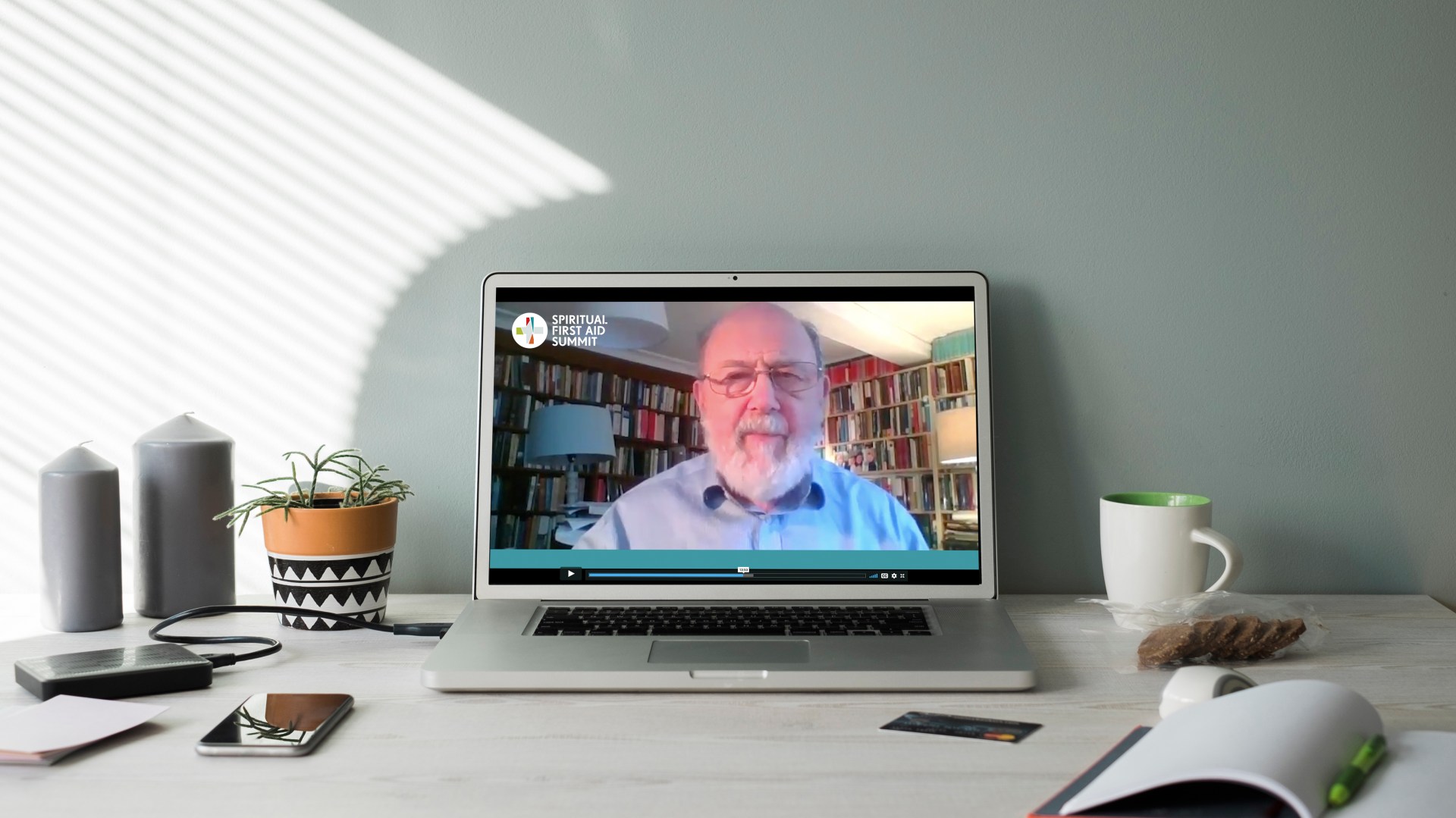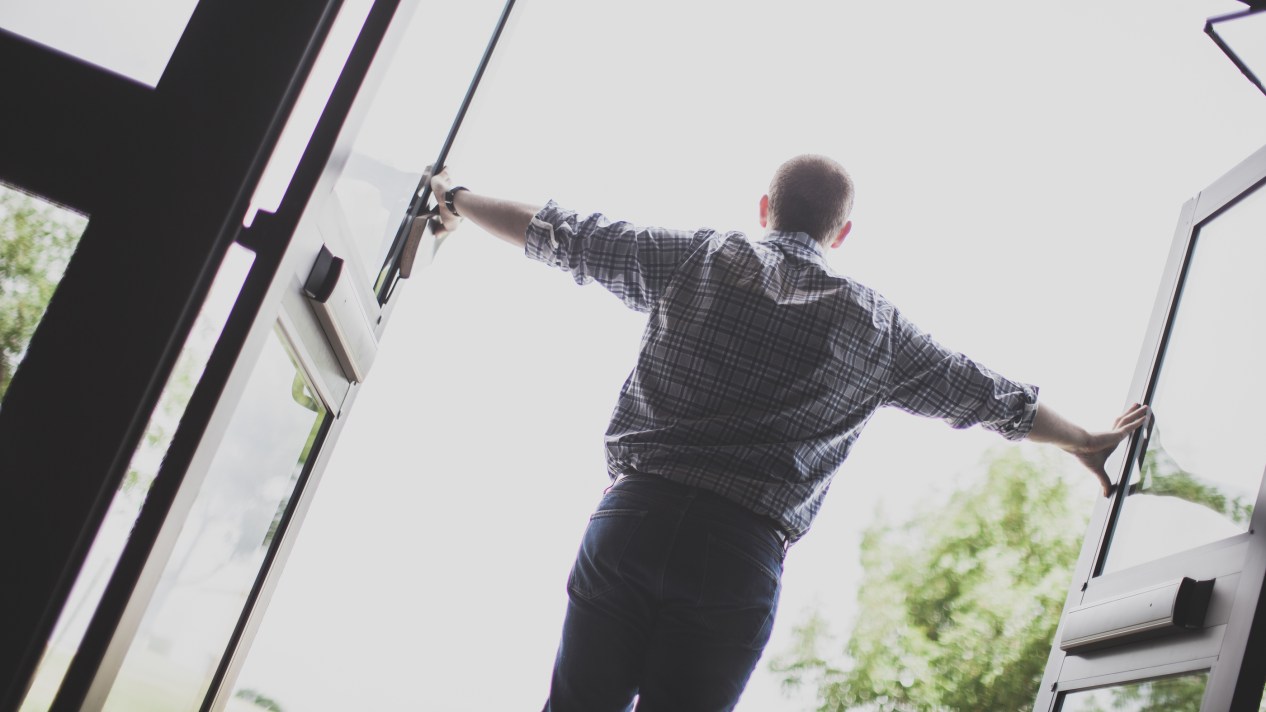As we look ahead at some parts of the country continuing to shelter-in-place and others starting to re-open, it’s vital to consider how to navigate new phases of response. The church can step up to lead the way in providing COVID-19 mental health support.
Last week, we at the Humanitarian Disaster Institute (HDI) at Wheaton College partnered with Food for the Hungry, NavPress, and Outreach, Inc. to offer the Spiritual First Aid Summit, an event that brought together Christian writers, thinkers, scholars, and pastors to encourage and equip us all to care for the great spiritual and emotional needs around us. Over 10,000 people from all over the world registered to participate in this event, which featured videos from speakers including N.T. Wright, Dr. Efrem Smith, Rev. Dr. Brenda Salter McNeil, Pete Scazzero, Danielle Strickland, Ian Morgan Cron, and others.
With a diverse chorus of voices, speakers’ messages addressed the five core needs that we have identified as being critical in the wake of a disaster:
- Belonging Needs (relationships)
- Livelihood Needs (health, finances, resources, employment)
- Emotional Needs (mental health)
- Safety Needs (suicide, harm to self, threat to others, domestic violence)
- Spiritual Needs (faith, spiritual struggles, meaning-making, purpose)
The unique insights shared by each speaker help us think more deeply and practically about how to provide care that is grounded in both biblical wisdom and best practice. Here are some of their important reminders for the church in this moment:
We need to be prepared. In his welcome message, Director of the Department of Homeland Security (DHS) Center for Faith & Opportunity Initiatives Kevin Smith, CEM, reminded us that “regardless of the event of the crisis in one's life, people turn to their faith leaders. Sometimes it's in times of joy, the birth of a new child, or sometimes it's in times of crisis, perhaps trying to raise a teenage child. People turn to their faith leaders because they look for hope and to someone that they can go to that they can trust.” Our research shows that houses of worship are often one of the first places people turn when they are in crisis—whether they need physical, emotional, or spiritual support. We must be prepared to respond to these needs to the best of our ability.
We need to address mental health concerns, especially for youth. Dr. Kara Powell, Executive Director of the Fuller Youth Institute, spoke to the critical emotional health needs that we’re seeing today. She explains, “There is a 40 percent increase during this current pandemic of people who are asking for more support because they have greater mental health needs and probably about 75 percent of those who are reaching out to those hotlines are under 25.” Powell offered participants practical tools for helping young people deal with anxiety.
We need to balance lament and hope. The Summit offered a healthy balance of lamenting the current crisis and offering hope for the church’s loving response to a world in need. Professor N.T. Wright offered, “This is a time for lament. For admitting that we don’t have easy answers. For weeping at the tomb of our friends. For the inarticulate groaning of the Spirit.” Beginning by acknowledging the real challenges we face and the need for lament, the overall tone of the summit was one of hope and possibility. Specifically, several of the speakers recognized the opportunity inherent in the present crisis: an opportunity for personal growth, an opportunity to recognize God’s presence in new ways, and an opportunity to care for others.
We need to recognize inequality and be bridge builders. Several speakers called participants to notice and overcome the current divisions in the world and in the church. Rev. Dr. Brenda Salter McNeil explained, “We are all connected, and what happens globally impacts all of us, and we can’t be individualistic.” Naming that before COVID-19 there was already social distancing by race, class, and place, Dr. Efrem Smith challenged participants to become “bridge people” who reconcile relationships in our deeply divided world. He exhorts, “The church has an opportunity in this season to be a bridge so that the lost can be found, the hurting can heal, and the broken can be blessed.” Sandra Maria Van Opstal, the co-founder and executive director of Chasing Justice, reminded participants, “We are experiencing this pandemic very differently from our social location and socio-economic location.” She asks, “So what does it mean to choose to be in this together?” And more specifically, she asks, “What does it mean to align our flourishing with those that are most vulnerable and unseen?” She encouraged leaders to make a choice to be in this with those who are most vulnerable by investing time, money, creativity, and innovation into the building of God’s kingdom.
We need to look to the example of the early church. Dianna Nepstad pastors Fellowship Church, outside of San Francisco, with her husband, Shaun. In her talk, Nepstad encouraged and equipped participants to care for others in very practical ways at this time, explaining, “The church in the first century was practical and we have to go back to our roots.” Some of the acts of care Nepstad mentioned included phone calls, written notes, grocery deliveries, and even teaching elderly church members how to transition and use technology to connect with others.
We need to prioritize self-care. In addition to a call to care for others, speakers also noted the need for participants to ensure that their own needs were being met. Several speakers encouraged leaders, who are busy actively caring for others, to practice self-care. Jimmy Rollins explained, “Leaders can sometimes hide in their emotions. If we are going to lead people to freedom, I think it’s good that we experience it ourselves.” He adds, “As leaders, we sometimes have the pressure to fix everything. We need to have a boundary and say, ‘This doesn’t belong to me, it belongs to God.’” Burnout is always a significant risk in ministry, even more so now as we don’t know exactly how long this will all last. As an additional resource, we have developed a free online course on Preventing COVID-19 Compassion Fatigue and Burnout to equip church leaders to respond well, not only now but for the long haul.
The Spiritual First Aid Summit was held because people can experience less distress—and thrive better post-disaster—when they receive spiritual support from people in their church or community. You can learn more, and access free resources including our new Spiritual First Aid Manual, at www.spiritualfirstaidhub.com.
Jamie Aten, Ph.D., is founder and executive director of the Humanitarian Disaster Institute at Wheaton College. Follow on Twitter at @drjamieaten or visit jamieaten.com.
Kent Annan, M.Div., is director of Humanitarian & Disaster Leadership at Wheaton College. Follow on Twitter at @kentannan or visit kentannan.com.
It’s not too late to access the Spiritual First Aid Summit; register today to get access to all the videos and free resources at https://www.spiritualfirstaidsummit.com/ .
Posted


